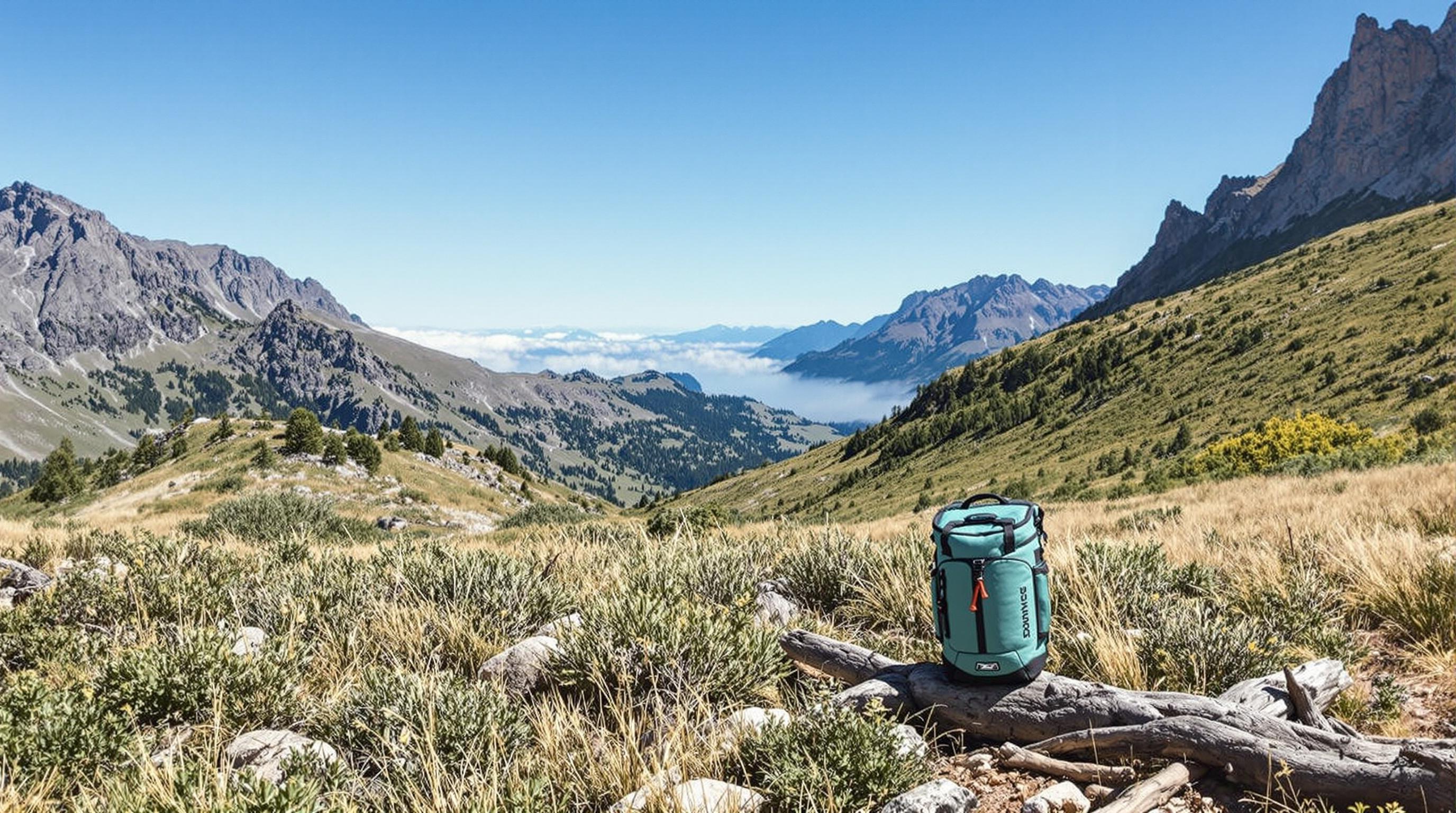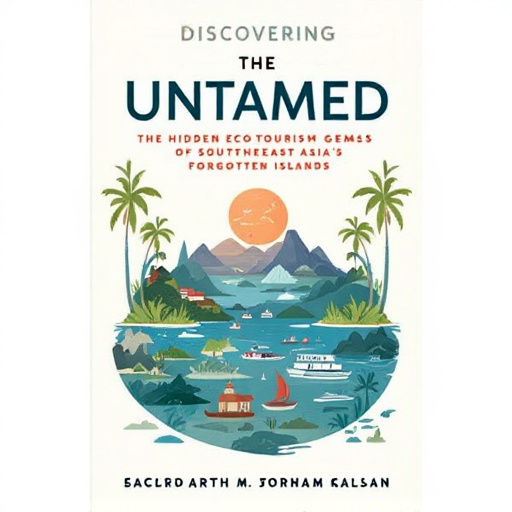Featured Articles
- 7 Best Portable Water Purifiers for Exotic Destinations Tested and Ranked for Ultimate Travel Safety
- Chasing the Unseen: Discovering the World's Most Mysterious and Controversial Hidden Paradises
- Discovering the Untamed: The Hidden Ecotourism Gems of Southeast Asia's Forgotten Islands
- Discovering the World's Hidden Fractals: Unveiling Exotic Destinations Through Nature's Patterns
- "Lost in Translation: Exploring the World’s Strangest Travel Customs in Exotic Destinations"
Discovering the Untamed: The Hidden Ecotourism Gems of Southeast Asia's Forgotten Islands
Discovering the Untamed: The Hidden Ecotourism Gems of Southeast Asia's Forgotten Islands
Exploring the lesser-known islands of Southeast Asia reveals breathtaking landscapes, diverse wildlife, and a rich tapestry of cultures waiting to be uncovered. This journey is more than a mere travel experience; it's a chance to nurture sustainable practices that protect these ecologically significant areas while empowering local communities.
The Allure of Hidden Islands
Let’s start with a bit of humor. If you think your life isn’t exciting enough, try telling your friends you’re going to a place that is literally off the map. “Oh, I’m off to one of Southeast Asia's forgotten islands. No, it’s not Bali—it's the other one.”
Nestled between the popularly trodden paths of Bali and Thailand, these islands remain under the radar. Tourist statistics show that over 14 million visitors flock to Bali each year, while other islands nearby receive only a fraction of that attention. According to the Pacific Asia Travel Association (PATA), less than 5% of visitors to Indonesia head to its smaller islands, leaving a treasure of untouched beauty.
Taking the Path Less Traveled
Imagine waking up to the sounds of chirping birds and the gentle lapping of waves, stepping onto a beach where the footprints left are yours alone. This is the reality on islands like Togean and Wakatobi in Indonesia, where the marine life is as colorful as the sunsets. These ecotourism havens promote snorkeling and diving, showcasing biodiversity and habitats like coral reefs that are in desperate need of protection. A staggering 70% of the earth’s coral reefs are under threat from climate change and pollution, according to the United Nations Environment Programme. By choosing these destinations, travelers help drive attention to conservation efforts.
Case Study: The Togean Islands
The Togean Islands serve as a notable case study in this space. Located in the Gulf of Tomini, the islands boast serene beaches and a unique blend of culture and nature. Local communities here have embraced ecotourism as a sustainable way to generate income while preserving their environmental assets. Visitors can take part in community-led conservation programs, such as coral reef restoration, giving tourists not just a vacation, but a meaningful impact.
Encountering Nature's Wonders
Now, let’s talk numbers. In a recent report by the World Wide Fund for Nature (WWF), it was highlighted that Southeast Asia is home to 20% of the world’s tropical forests, which are pivotal for carbon storage and wildlife habitats. Now imagine wandering through these pristine jungles on Sumba Island in Indonesia, famous for its traditional villages and rituals. This island is the ideal backdrop for adventurers seeking to engage with indigenous cultures while forging a deeper connection with nature.
And speaking of connection, what could be better than drinking a cup of locally-grown coffee while overlooking a breathtaking terraced rice field in Batad, Philippines? Cultivated sustainably, these coffee plants support local farmers and promote biodiversity in the region. Coffee tourism is on the rise globally, with a 20% increase in agro-tourism reported over the last five years, according to the Agriculture and Agri-Food Canada agency.
Ecotourism as a Catalyst for Change
Ecotourism spins a web of interaction among tourists, local communities, and ecosystems, offering a holistic experience that promotes understanding and stewardship. Many regions have seen revitalization through sustainable tourism practices. For instance, in the idyllic Koh Rong Archipelago, Cambodia, eco-lodges have replaced large-scale resorts, allowing travelers to immerse themselves in a natural haven without damaging the delicate environment.
Unveiling the Wonders of the Forgotten Islands
As the sun sets, you might find yourself gathering around a local fire on the beach with a group of fellow travelers, exchanging stories over an improvised dinner of freshly caught fish and local fruits. It is during these moments that connections deepen, and the essence of ecotourism truly shines. You’re not just a visitor; you become part of a larger story, an entity in a sustainable ecosystem.
Planning Your Escape
If you’re now excited about the potential of visiting these untouched paradises, here are a few tips to help you plan:
- Research: Before choosing your destination, read about the ecological practices in place, and find out how your visit can contribute positively.
- Pack Smart: Bring reusable items such as water bottles and bags to minimize waste.
- Engage with Locals: Participate in local workshops and guided tours to ensure your money supports community initiatives.
- Consider Travel Season: Off-peak seasons often provide quieter experiences and more opportunities to connect with locals.
Casually browsing online for tickets? Don't forget to check community forums like Lonely Planet's Thorn Tree or the Eco Traveller's Forum for first-hand insights from those who have tread these paths before you.
The Ripple Effect of Responsible Travel
Every journey has a ripple effect. Choosing to travel to hidden ecotourism gems not only reduces the overwhelming pressure on better-known tourist destinations but also supports local economies, preserves biodiversity, and fosters cross-cultural connections. As reported by the United Nations World Tourism Organization (UNWTO), sustainable tourism creates job opportunities while preserving local heritage—absolutely a win-win scenario!
The Beauty of Biodiversity
The forgettable islands of Southeast Asia offer a treasure trove of biodiversity. Did you know that just diving in Raja Ampat, Indonesia, can unveil over 1,500 species of fish? This underwater adventure is among the richest marine habitats in the world, making it an ideal destination for conservation-minded travelers.
Cultural Engagement: More than Just a Visit
Want to dip your toes into another culture? On the island of Palawan in the Philippines, you might participate in traditional fishing techniques while learning about the customs of the indigenous Tagbanua people. Engaging in such experiences provides travelers with a deep understanding of the cultural significance behind local practices. According to a study by the International Journal of Tourism Research, 72% of travelers want experiences that connect them with local cultures. By visiting lesser-known islands, you're fulfilling that desire while giving back to the communities.
Eco-Lodges: A Sustainable Stay
Staying in eco-lodges is an excellent way to immerse yourself in a local side of tourism. Well-established lodges, like the Borneo Nature Lodge or Bali Eco Stay, ensure that accommodations support sustainability initiatives without sacrificing comfort. In fact, staying at eco-lodges can often provide unique experiences such as guided hikes, wildlife watching, and farm-to-table dining experiences that enhance the overall adventure.
The Power of Community Tourism
The concept of community tourism reorients the focus of travel from simply visiting to truly experiencing. A case in point is the 'Community-Based Tourism' initiative in Lanta Island, Thailand, where visitors contribute to local literacy programs and wildlife conservation efforts. It’s a beautiful blend of giving back and having fun. Visitors, both young and old, are finding joy in experiences that not only broaden their horizons but also bolster communities economically.
Conclusion: Your Untamed Journey Awaits
In conclusion, the forgotten islands of Southeast Asia beckon with their untamed beauty, unique cultures, and the profound impact of responsible travel. Whether you're an adventure seeker, a cultural enthusiast, or an eco-warrior, these hidden gems offer experiences that are not only unforgettable but also critical to the preservation of our planet. In a time when environmental sustainability is more crucial than ever, make the choice to explore the ecotourism gems that Southeast Asia has to offer. Your journey awaits, and the untamed landscapes are ready to be discovered.
At the end of the day, the real adventure lies in knowing that by choosing to tread lightly on this earth, you're helping to create a better tomorrow for the cultures and ecosystems that remain hidden from the eyes of mass tourism. So, grab that backpack, dust off those travel shoes, and let your untamed journey begin!




